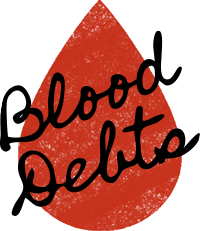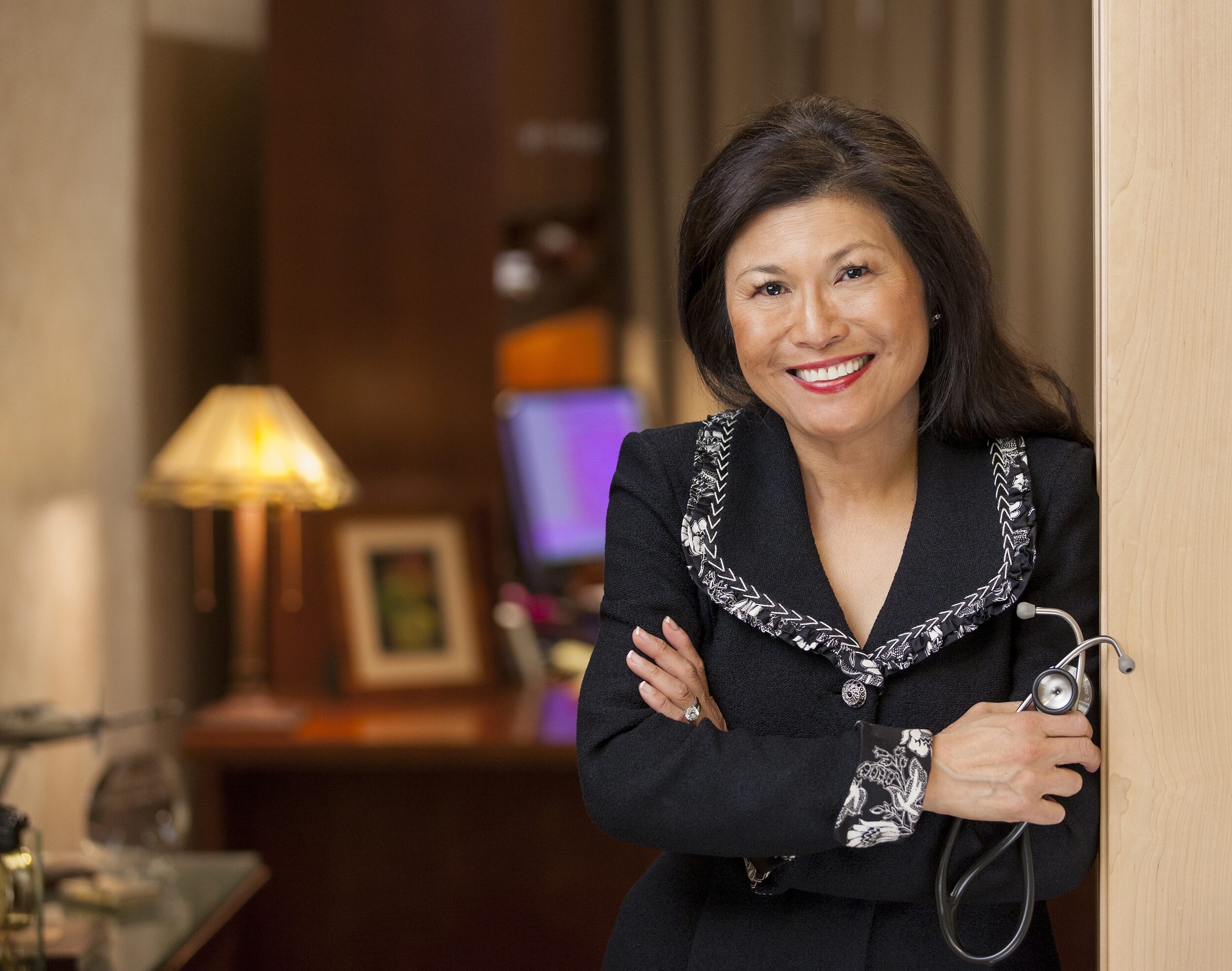Episode 10:
Gratitude, Trust and Debts Greater Than Ourselves
Transcript
VOX POP BEGINS
Debt. I think it is something owed, you know, that's like the dictionary term and it doesn't have to be monetary.
I'm thinking of it as a favor to someone or gratitude.
It's a promise of a transaction or a return.
I guess I would say something like a debt always brings up negative feelings with me. If I define it as you owe somebody or some institution something.
VOX POP ENDS
INTRODUCTION BEGINS
In Blood Debts, we tell the stories of choices and sacrifices to pay back what is owed and pay forward something of value.
I’m your host, Leezel Tanglao.
On this podcast, we talk about one of the few through lines in people’s lives - debt.
You’ll hear stories from the Filipino diaspora around how debt has impacted all aspects of life from those in the medical field, public service sector to creative arts.
As a journalist, I’ve spent more than a decade reporting on the financial aspects of debt in diverse communities.
But many carry debts beyond money.
INTRODUCTION ENDS
Dr. CONNIE MARIANO: I think growing up as a child of Filipinos, Filipino, American, it's always been part of my culture with my mom and dad because there's always the feeling that I owe them so much. I owe them my life. I owe them my financial security. I owe them all the lessons.
And I remember when I had joined the Navy and gone to med school, there was always a financial debt and and always including them in an allotment that I had to them ever since I joined the military. And actually I look back the very first job I had in high school.
I came home with my first paycheck and I gave half the value to my mom and dad because it's like, what do I do with this? You always you always do that. And I know my parents growing up seeing them, they would always send money back home to the Philippines, to their parents, because you they said you owe you owe that debt to your parents.
So that's really what I grew up believing in.
LEEZEL TANGLAO: In this episode, we talked to Dr. Connie Mariano, who served as the White House doctor for three U.S. presidents, George H.W. Bush, Bill Clinton and George W. Bush. We discussed debts in the military and health spaces and debts that are greater than ourselves, such as with our family, our bloodlines.
Dr. CONNIE MARIANO: My name is Dr. Connie Mariano and I'm a former White House physician and I am a physician in private practice in Scottsdale, Arizona.
When I was interviewed for the White House position, Dr. J. who is a physician to George Herbert Walker Bush, he asked me, why do you want this job? And in a very abrupt manner, very demeaning.
It felt like it was, why do you want this job? And I had seen what I call the signs from God where he had this Band-Aid over his forehead. And I thought, oh, nothing to lose with this case.
So I really didn't care at this point what my answer would be, because I knew there was no way I was going to get this job. So I essentially told him when he asks, why do you want this job? I said, Dr. Lee, it's payback time. And he looked at me like, what? And I said, Yeah, it's payback time. I, I owe a lot to the United States of America.
My father was a poor man from the Philippines who joined in the 1940s. He brought us here to the United States. I was educated in public school. I got scholarships to go through school. I joined the military, went to military medical school, and I owe my career, my opportunities, my life to this country.
And if I can repay my debt by serving the commander in chief, that's what I want to do. And I ultimately got the job as a result of the plan, really the intention to pay back a debt, the military side. It was the paying back of my time in the military because I was given a full scar's scholarship.
My parents couldn't afford to send me to medical school. I didn't have money to do that. So for the four years in med school active duty, my payback was ten years of active duty time, which then got extended to an additional ten plus four more years by being at the White House and serving that time.
So you're always somehow paying back a debt. But I also think. Not only the White House, but in private practice, I'm always as a business owner, I don't like debt at all because my parents always paid everything in cash. They didn't like debt. Whenever they bought a car, they saved up the money.
And I you know, I always make sure private business owners, you pay on time, you're not in debt. You want to liquidate. I mean, I was always in that very cautious way and that really framed a lot of things. My parents were all into savings to the point when my dad died at 94, almost 94, about a year and a half later. And my brother finally was he was a trustee of the estate and he liquidated everything and then divided up. I was so shocked.
My sister and brother and I were shocked because he had a million and a half in assets. And it was like, whoa, this dad never flew first class. They saved and scrimped and he had that money. It was based in real estate houses and they only had checking, you know, they had savings account, Navy, Federal Bank of America. They didn't play the stock market. You know, that the fact that they always sent money home to the family, that was always included.
I think it's in growing up, having been married to a Caucasian man, first husband, grew up in the United States is American. My second husband was Canadian and then came to United States. And pretty much their cultures were you don't owe your parents anything. They owe you.
They brought you into the world and that's their job. That's a responsibility of parents. And so when I my first husband, I had our children. He's Caucasian. We never thought, well, our kids can't pay us back. That's our responsible. We're responsible to bring these kids into the world. It's our decision.
So we should take care of them versus the way it was explained to me by my father, who was one of 13 my gosh, 14 kids. His father was married to my first grandmother and my dad was one of seven. Then she died giving birth to her eighth baby. And then my grandfather remarried and had seven more kids. So 14 kids. And he would my grandfather would tell my father, your job is to go in the Navy, make money, send money home so I can support everybody because I gave you life. So it was like you have children so they can support you.
While the Caucasian way growing up was no, your parents gave birth to you, it's their job to be responsible parents and support you. So it is a clash of those cultures because my kids, I don't expect them to give me any money. I on the other hand, I’m very supportive, paid for their education that because that was my obligation. But if you were in the Philippines, it would be no, your children should be sending your money. So it's a clash of the cultures. And we do that dance. We straddle both cultures. And how do you reconcile that? That's the challenging part right now.
So, when President travels around the world. You know, they always give thanks.
I think the times I hear presidents talk about debt is when they go to other countries. And if we had had war, a conflict and how they, for example, America, you know, World War two and you talk about our allies, we owe a great debt to our allies to get us through the war. I think that's where you can never be repaid. Right. We all great debt, for example. I remember I've been to Normandy twice now and I remember we had done an event for D-Day, the American cemetery, and President Clinton talking about the great debt that he owes France, that they helped us, you know, fight the Germans and then our allies to fight the Germans and and then the debt of the lives of the soldiers who who died on the beaches of Normandy. How do you ever repay that?
Those young kids who died there and and that was their service to the country that thinks that there's things that you cannot pay back. But then you honor the memory and the hope is that you honor their life and what they did by moving on and bringing forth the positive things that they stood for.
LEEZEL TANGLAO: Dr. Mariano and I met via a DNA ancestry test match. We have yet to figure out where we are connected, but we share a common ancestor blood debt.
You know, you can't take a life to pay back alive. But I think I look at blood and that's that's your blood ties, your family. You know what gives us life? What gives us our DNA? We met through DNA, right. We owe our debt to our ancestors who somehow put us together.
I mean, we you and I owe our debt to some great, great, great ancestor grandparent out there who if it weren't for those people, we wouldn't be sitting here.
That debt can never be repaid. But we can surely appreciate and honor their memory by helping others in the way who others who don't have a voice. You're a communicator. You get your messenger. And I do the things I do through medicine with lies, but also another communicator.
We're both examples to others who come to this country and who are seeking guidance and who are lonely and feel like they're the only ones that they're part of the minority, and maybe that's maybe that's how we somehow come close to that debt by by being a beacon of light and inspiration to those who don't have what we have.
OUTRO BEGINS
There are many sides to debt.
This series intends to take you on a journey through defining and redefining debt through stories of Filipinos in the diaspora.
Upcoming stories from guests like rapper Ruby Ibarra are just a sampling of the journeys you’ll hear along the way.
That’s all for this episode, thank you for listening.
To find out more about the series and upcoming episodes and resources, visit Blooddebts.com
Follow us on Facebook, Twitter and Instagram.
Blood Debts is produced and hosted by me Leezel Tanglao.
This series is a legacy project of the Filipino Young Leaders Program.
Shoutout to FYLPRO Batch 8.
This series is dedicated to all those who struggle to talk about uncomfortable issues and for all those who ever felt overlooked.
I see you.
I hear you.
OUTRO ENDS

